Steve Walker is excited for the potential of Evari’s turbocompressor
| Published: 04-01-2024 8:33 AM |
From a refurbished 200-year-old mill at Noone Falls, a new Peterborough-based company, Evari, is looking to change the world.
“Energy is the whole reason this building is here,” said entrepreneur Steve Walker as he led a tour through the renovated space near a 190-year-old dam on the Contoocook River. “It’s kind of cool that this is where we’re getting started.”
Walker and his team of eight have created a heat pump turbocompressor that can replace conventional turbocompressors used in any machinery that creates cooling, such as refrigerators, dehumidifiers, freezers and air conditioners, in both buildings and in vehicles. The compressor, which is fully engineered, is in the prototype stage.
Jonathan Bass of Evari explained that “Compressors are an invisible technology, but they are what make heat pumps work. They compress and circulate a refrigerant gas inside the heat pump, which is how heat pumps provide both heating and cooling.”
Bass said the Evari compressor could have a significant global impact.
“About 40% of global energy could be impacted by this compressor. It’s a big deal,” Bass said. “We don’t know of anyone else doing this, or even attempting it. Some companies, like Mitsubishi, are making in improvements in their compressors, but no one has cracked how to bring miniature heat pump turbocompressors to the mass market. We’re pretty sure we’re the first.”
According to Walker, Evari’s turbocompressor uses 50% less electricity than standard compressors used in the industry, and can be manufactured at a fraction of the cost. Bass notes that currently, 20% of all global electricity is consumed by refrigeration compressors.
In the next few years, according to Walker, the Evari team plans to build multiple manufacturing plants in the Monadnock region, potentially bringing hundreds or even thousands of jobs to the area. Once the prototypes have been tested and proven in the field with initial clients, Evari will start scaling up for mass production. Walker, who designed and built multiple manufacturing plants for his previous company, New England Wood Pellets (now Lignetics), is committed to manufacturing the Evari heat pump turbocompressor in New Hampshire. Walker hopes to break ground on a manufacturing facility in about 18 months, and start mass manufacturing a year from that.
Article continues after...
Yesterday's Most Read Articles
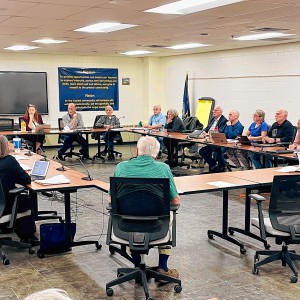 ConVal committee begins to study withdrawal process
ConVal committee begins to study withdrawal process
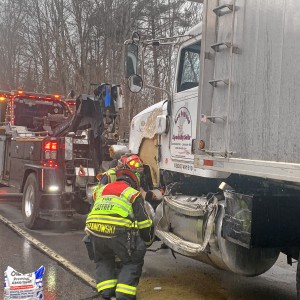 UPDATE: Drivers identified in Jaffrey dump truck crash
UPDATE: Drivers identified in Jaffrey dump truck crash
 Francestown welcomes new Library Director Beth Crooker
Francestown welcomes new Library Director Beth Crooker
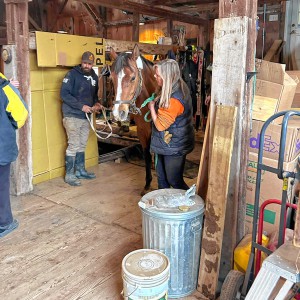 New Ipswich firefighters called on to rescue horse
New Ipswich firefighters called on to rescue horse
 Big first inning carries Wilton-Lyndeborough softball to win over Sunapee
Big first inning carries Wilton-Lyndeborough softball to win over Sunapee
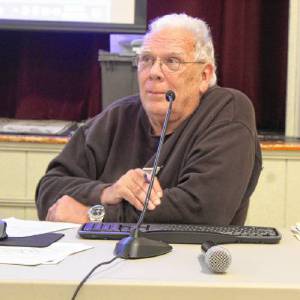 Temple unlikely to hold special Town Meeting on ConVal withdrawal
Temple unlikely to hold special Town Meeting on ConVal withdrawal
On March 26, Evari announced that it has received $7.5 million in seed money from Boston-based Clean Energy Ventures (CEV), which invests in startups that can mitigate 2 1/2 gigatons of carbon dioxide. Unlike standard heat pump turbocompressors, Evari’s product runs on natural refrigerants.
“The synthetic refrigerants that are used now are somewhere between bad and horrendous for the environment,” Walker said. “As soon as someone removes an air conditioner, the gases get released, and they’re thousands of times more harmful than CO2. The global warming impact from refrigerants is equal to that of the global aviation industry. Using natural refrigerants eliminates that impact.”
Bass and Walker explained that the Evari heat pump turbocompressor is based on the ones used in the Hubble Space Telescope, which cost NASA about $500,000 apiece. Evari has engineered a similar a turbocompressor materials that cut the cost of a unit to hundreds of dollars.
“I know that sounds absurd, but that’s what it is,” Walker says. “Developing our product has been this delicate balance of changing materials, changing processes, changing how it gets assembled, but we’re keeping the core technology that our team has deployed in satellites such as the Hubble Space Telescope. We had to make sure that this technology could be applied to a broad-enough segment of the industry to pay off, that it made sense to go through the very complicated effort of converting this into a product that could be sold every day for a reasonable price.”
Walker, Bass and their team came up with the concept for Evari while working on a different energy-related project.
“What led us to this develop this product was just the fact that we needed a better heat pump. We just couldn’t get the heat pump we needed, and the limitation was in the incumbent compressor technology. The only heat pump that performed the way we needed it to was the one in the Hubble Space Telescope! We started to think, ‘Maybe we could build the compressor technology we need,’ and then we saw this opportunity to create something the whole world could actually use,” Walker said.
According to Bass and Walker, Evari’s heat pump turbocompressor has a broader temperature range than existing compressors, which would enable heat pumps to function at much-lower temperatures. Bass notes that heat pumps are currently not a popular heating source in New England because they don’t work well in low temperatures and typically require a backup heating source. The Evari compressor is being engineered to function at minus-40 degrees for use in residential heat pumps.
“This technology represents a major leap forward in the design and precision manufacturing efficiency of affordable compressors. While turbocompressors have historically been reserved for high-cost applications, Evari makes them possible everywhere,” said Temple Fennell, co-founder and managing partner at Clean Energy Ventures.
Walker’s team already had a working relationship with Creare, a Hanover-based technology and product development lab that makes parts for the Department of Defense and NASA, from a previous project dating back to 2015. Once they had finalized their concept, the Evari team approached Creare about developing a mass-market, miniature heat pump turbocompressor, funding the initial research themselves. In order to work, the Evari turbocompressor has to spin above the speed of sound. Walker notes that spinning a compressor at such a high speed had never been attempted, and the engineering team at Creare wasn’t sure it would work.
“They had never spun a turbocompressor that fast, and we had to show them it would work before they would go any farther with the project,” Walker said. “So there was this crazy moment where we go to test it and everyone is standing around holding their breath, thinking, ‘Is it going to work, or is it going to blow up?’ They kept turning it up and up, and it’s going faster and faster, and then it went over the speed of sound! Then it did exactly what we were hoping it would do -- it worked.”
Walker cited the state-of-the-art manufacturing facility at Noone Falls, complete with temperature-controlled labs and a “clean box,” where the Evari prototypes are assembled. The main component of the compressor is just a few inches long.
“People don’t realize how much deep tech manufacturing, especially for defense, there is in this area. All of our key vendors are in New Hampshire,” Walker said. “And I’m sure driving by this old building, no one would ever guess what’s going in inside.”
For information about Evari, go to evarithermal.com.

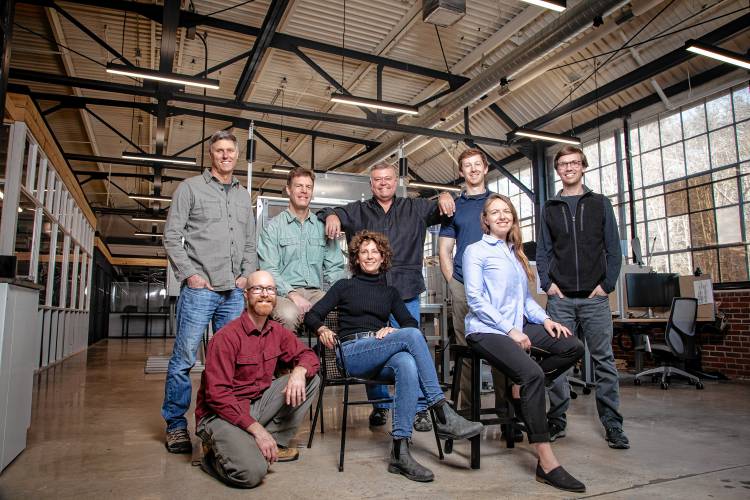
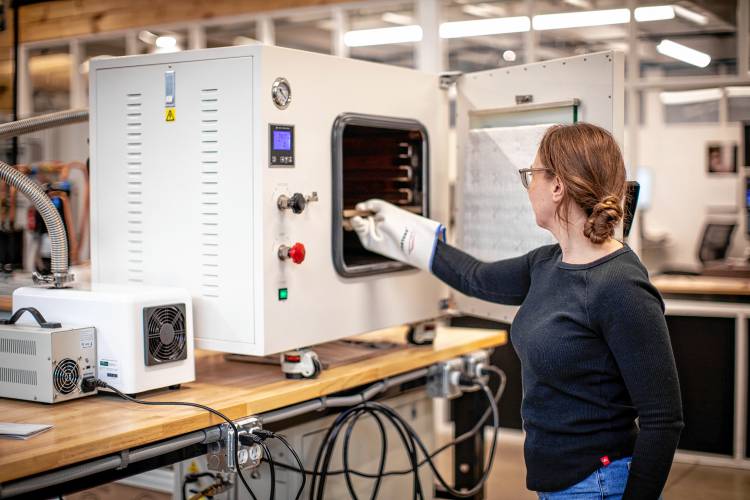
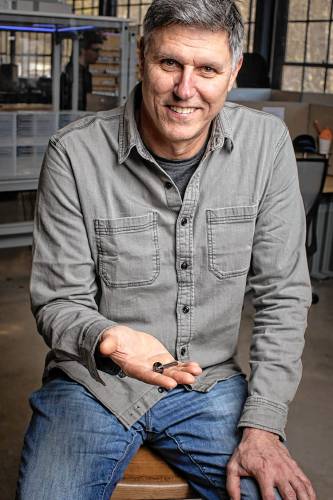
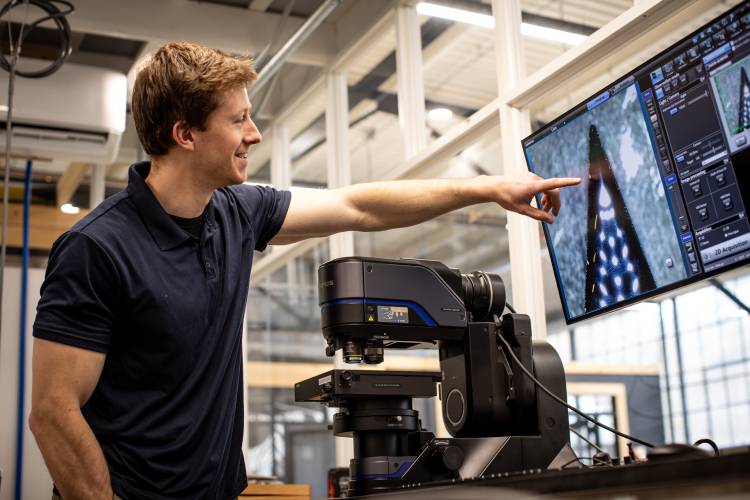
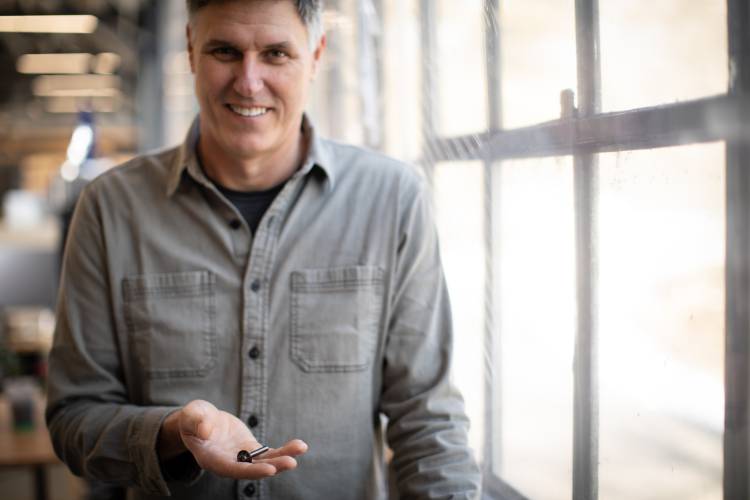
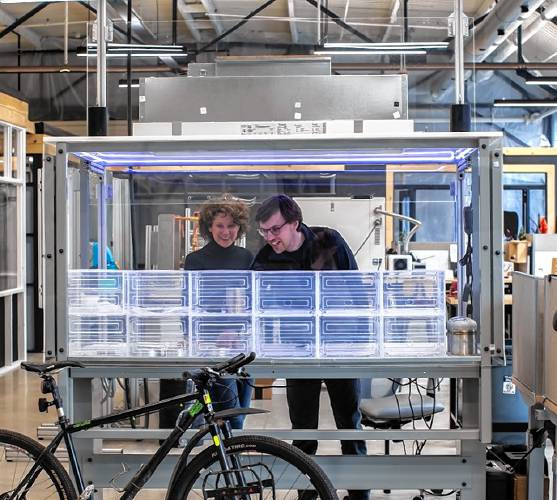
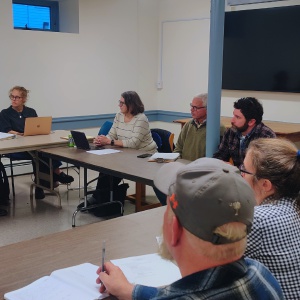 Education committees gather in Dublin
Education committees gather in Dublin
